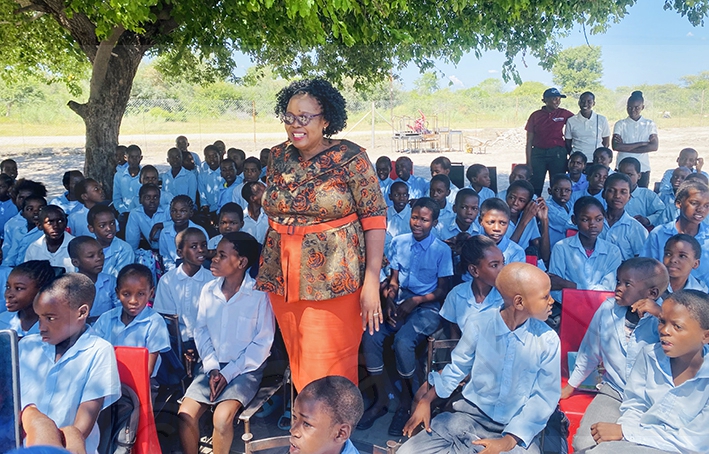Poverty eradication projects monitoring key
17 Oct 2016
Stringent monitoring and mentoring of poverty eradication projects is key towards their sustainability.
Commenting during the Presidential Inspectorate Task Team debriefing in Kang on October 14, Kgalagadi District deputy commissioner, Mr Patson Dibotelo, pleaded with members of the poverty eradication committee to ensure that poverty eradication beneficiaries were closely mentored to ensure their project sustainability.
He said most beneficiaries were illiterate, therefore they needed intense mentorship on how best they could operate their projects.
He said it had surfaced that there was lack of project commitment from some beneficiaries, something which resulted in the collapse of projects.
As government policy implementers, Mr Dibotelo said government officials needed to encourage poverty eradication beneficiaries to refrain from neglecting their projects as doing so forfeits government’s efforts to empower the communities in making them self-sustainable.
Government, he said, was committed to eradicating poverty, therefore it was equally important for beneficiaries to invest their attention towards the success of their projects.
“Some beneficiaries leave their projects unattended for easy income generating means something that calls for some intervention from government officials to motivate the beneficiaries on the essences of project management,” Mr Dibotelo said.
The success story of the projects, he said, entirely depended on a creation of a good rapport between the beneficiaries and government officials.
Mr Dibotelo further said it was important for beneficiaries to be encouraged to establish sustainable markets for their produces.
He further decried of shortage of qualified poverty eradication officers and resources in the Hukuntsi Sub District highlighting that lack of skilled personnel hinders the success of some projects.
Mr Dibotelo also cautioned that the current drought might lead to a halt in the roll out of the LIMID programme in Kgalagadi. He said even though Kgalagadi is ideal for small stock farming, there is currently an increase in small stock mortality primarily due to lack of water and poor grazing area.
In some instances, he said some beneficiaries resort to barter their small stock for water in an effort to sustain themselves.
He said the water crisis particularly in settlements has reached a stage where beneficiaries are left with no choice but to exchange their small stock for water.
Meanwhile a member of the Presidential task team, Mr Peter Siele said the inspectorate team was pleased with the success stories from most beneficiaries’ testimonies, but also raised a concern towards the water crisis in Kgalagadi.
He said the water crisis was heartbreaking and generally forfeited government’s efforts to graduates beneficiaries from hardship of poverty. ENDS
Source : BOPA
Author : By Thato Mosinyi
Location : HUKUNTSI
Event : Presidential Inspectorate Task
Date : 17 Oct 2016





